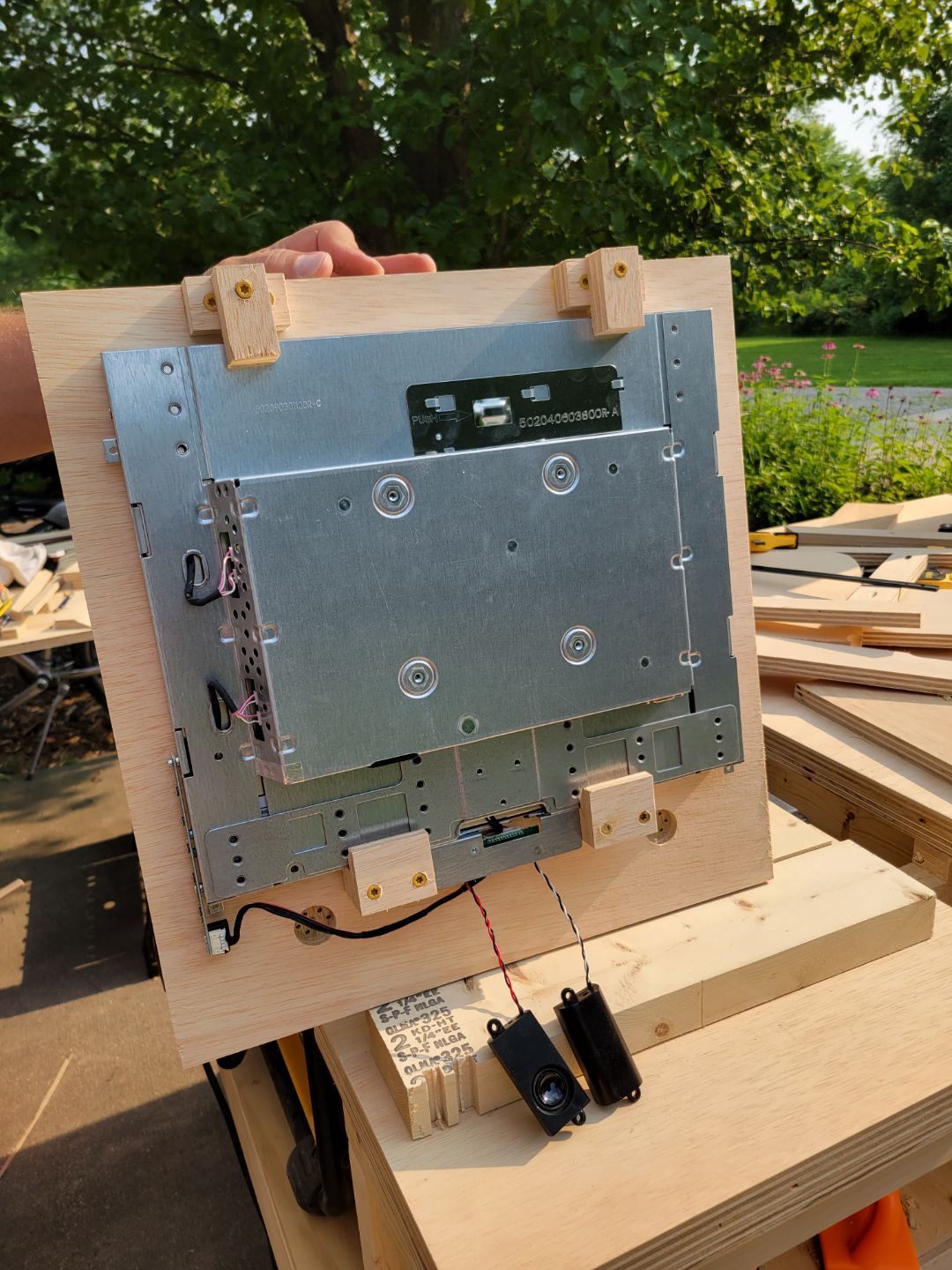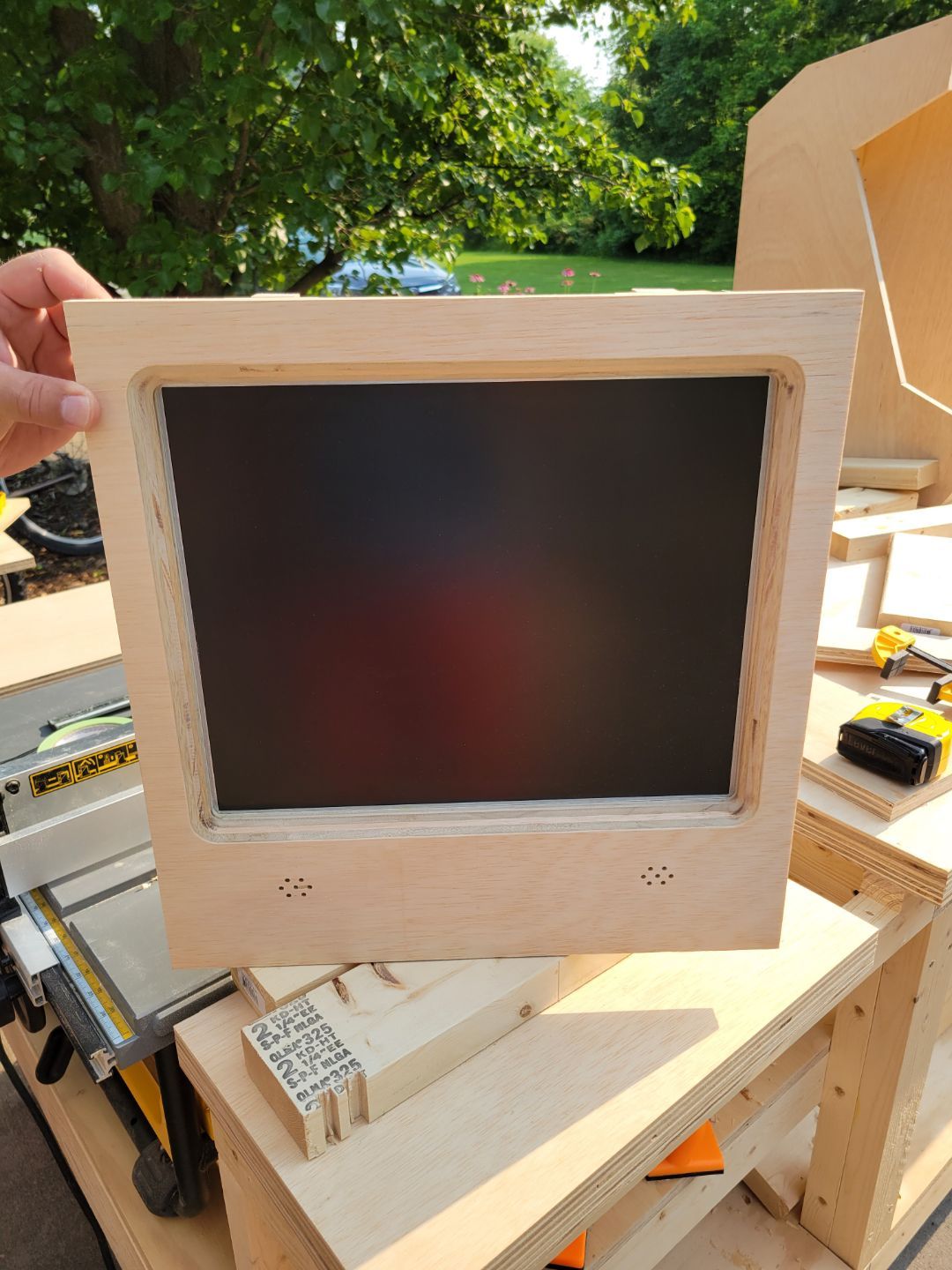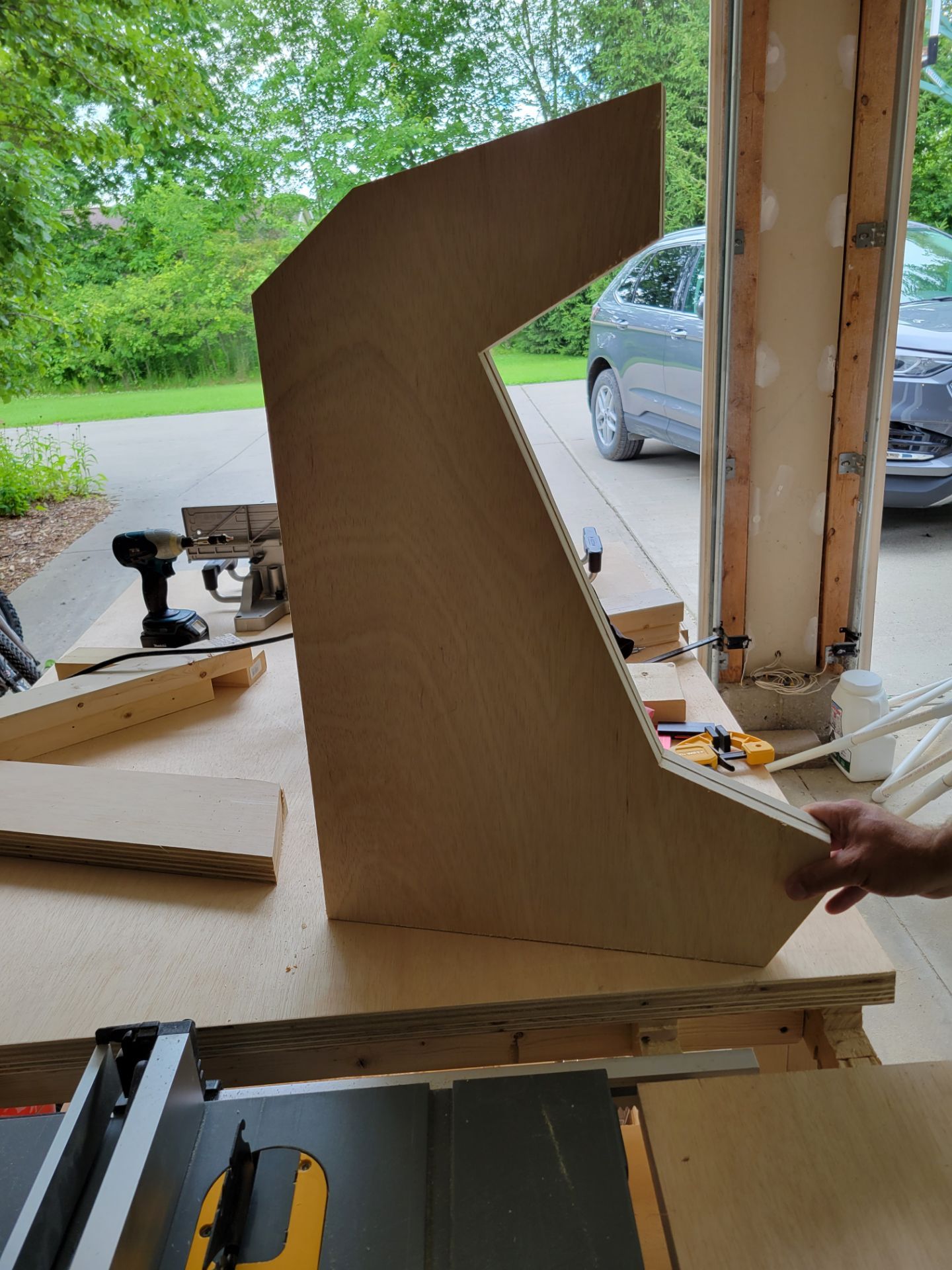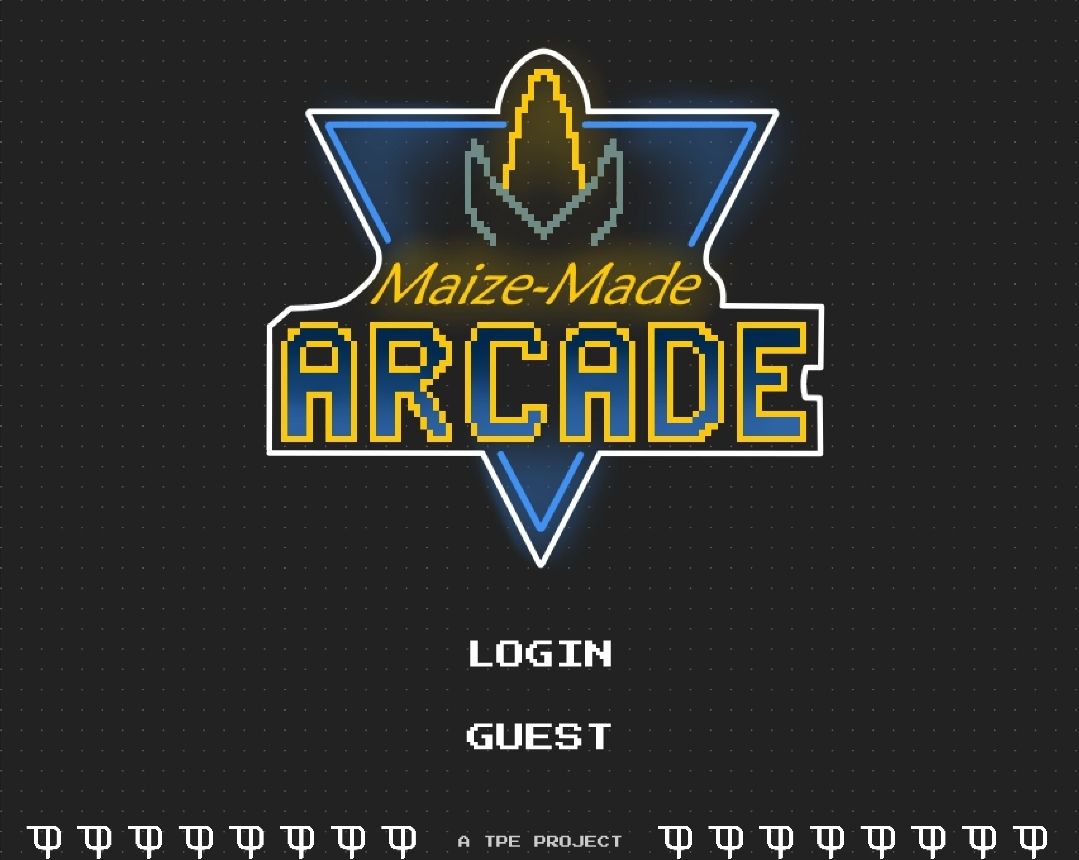Maize-Made Arcade: A Custom Arcade Machine Project

Welcome to the golden age of arcade video games! In this article, we will introduce TauPau Engineering's latest project: the Maize-Made Arcade, a unique arcade machine built completely in-house – from design, to fabrication, to game development. All with a little touch of maize to pay homage to the University of Michigan (the place TPE was born).
Designing the Maize-Made Arcade
The first phase of the project, as always, is the design process. Unlike traditional arcade machines you'd see that extend all the way down to the floor, we opted for a more compact "table-top" version placed on a custom-built stand. This decision allowed us to create a more compact and versatile arcade machine that could fit into various spaces without sacrificing the gaming experience. We wanted to strike a balance between functionality and aesthetics, creating a visually appealing arcade machine that would capture the essence of retro gaming.
The physical components of this project are as follows:
- Physical construction
- Display
- Buttons
- Joystick
- Power receptacle
- Electronics (controller board, expansion board, wiring, etc.)
We repurposed an old monitor as the display, reducing costs for the project while also adding a touch of nostalgia to the overall aesthetic with the lower resolution. The monitor is directly connected to a Le Potato single-board computer running Debian Linux, complete with a custom expansion board to seamlessly integrate the control interface (joystick / buttons) with the computer.
Game Development: GoDot Engine
No arcade machine is complete without a collection of thrilling games. For the Maize-Made Arcade, we chose to write all of our games using the GoDot engine. GoDot is an open-source game development engine that offers a wide range of features and tools for creating immersive gaming experiences. With its user-friendly interface and extensive documentation, it was the perfect choice for our project.
Currently, we have three games in development for the Maize-Made Arcade: Pong, VIctors' Crossing (our version of Frogger with a bit of University of Michigan flare), and the classic Asteroids. Each game has been designed to closely emulate the classic versions enjoyed by millions, with some minor additions / tweaks to make it our own. But we're not stopping there! We are continuously working on developing more games to expand the library of the Maize-Made Arcade.
You can play, too
One of our goals for the Maize-Made Arcade is to make the games accessible to as many people as possible. That's why we're not only creating a physical arcade machine but also publishing the games for anyone to play in a browser. This means that players can enjoy the retro gaming experience of the Maize-Made Arcade from the comfort of their own devices, without the need for specialized hardware.
By making the games available online, we hope to reach a wider audience and share our passion for arcade gaming with enthusiasts around the world. Whether you're a fan of classic arcade games or a newcomer to the genre, the Maize-Made Arcade has something for everyone.
More information on this will be provided in a dedicated project log.
The Journey Ahead
As we progress with the Maize-Made Arcade project, we will be sharing more detailed blogs about the individual components and development processes involved. Stay tuned for in-depth explorations of the physical design and fabrication, game development techniques, and hardware development challenges we encountered along the way. We believe in transparency and want to involve our audience in our journey, sharing both our successes and the lessons we've learned throughout the project.
Join us as we embark on this exciting adventure. Together, we will push the boundaries of custom arcade machines, combining retro gaming nostalgia with modern technology.
Sneak Peaks
This project is well underway, so enjoy a bit of a sneak peak on what to look forward to in future project logs. :)





